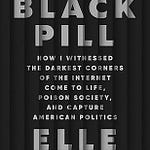In conjunction with Dissent magazine, I spoke to UC Berkeley sociologist Dylan Riley, author of The Civic Foundations of Fascism in Europe, about civil society, democracy, and fascism today. You can continue reading the abridged and much-cleaned-up version of the interview below on the Dissent site, or you can listen to Dylan and my full discussion, which goes into more detail and goes on to cover broader issues in American politics like the actual power of academia and the progressive left, as well as the electoral dilemmas facing both Republicans and Democrats.
Over the past decade, there’s been an intense, often bitter debate on the left over whether fascism is the correct framework to understand Donald Trump and his movement. I’ve been a fervent partisan for the position that Trumpism is a variant of fascism. Dylan J. Riley, a professor of sociology at Berkeley, has been a skeptic, writing that Trump differs in several important ways from the classic European examples of fascism. But I always found his work, drawing on Alexis de Tocqueville, Karl Marx, and Antonio Gramsci, to be rigorous and historically specific, and read it with great interest. I also believed that if interpreted differently, it supported my side of the debate.
Over the past several months, Riley and I have corresponded and discussed collaborating. In this conversation, we decided to compare notes on the state of American democracy and civil society.
John Ganz: I want to start with your book The Civic Foundations of Fascism in Europe. Political sociologists, especially those drawing on the work of Alexis de Tocqueville, traditionally argue fascist and authoritarian regimes arise in societies without a developed civil society or with a weakened civil society. The idea is that people are atomized, lonely, and vulnerable to mass movements that can take advantage of this atomization and loneliness, and, without all these intermediary institutions, a nation can easily be taken over by the state.
Your book, using the work of Antonio Gramsci, argues the opposite: fascism arose in societies with highly developed and rapidly developing civil societies, with a proliferation of associations, clubs, and organizations—but without hegemonic political parties that could effectively channel the democratic demands that came from this overflowing civil society. When such demands arose, people rejected the old institutions as unrepresentative and sought something more direct, less mediated through parliament and traditional party structures. Fascist movements took advantage of that crisis and offered a solution you called “authoritarian democracy.” Am I getting this right? And was it this understanding that made you hesitant to label Trump a fascist?
Dylan J. Riley: Yes, that’s the argument. Fascist parties required strong civil societies. They had memberships and secretaries and local branches and people marching in the streets and engaging in paramilitary activities against the left. They modeled themselves on socialist and communist parties, especially the socialist parties. That was the struggle out of which fascist parties emerged. I didn’t see the analog to that in Trump’s first term.
I also pointed out other differences. The social basis of Trumpism seemed distinct from interwar fascism. The international context was also very different. Fascism emerged in second-tier powers trying to assert themselves against British global hegemony (now I’m using “hegemony” in its geopolitical sense). Trump’s foreign policy, by contrast, was erratic and timid. It wasn’t directed toward revision in the fascist sense. American isolationism is a peculiar tradition and has become more so. That was my position in the first term.










